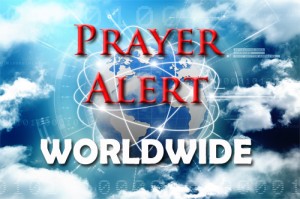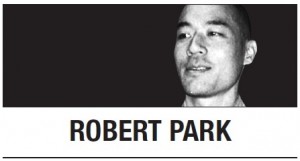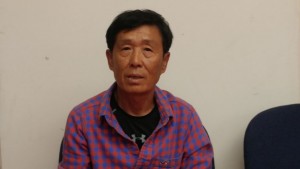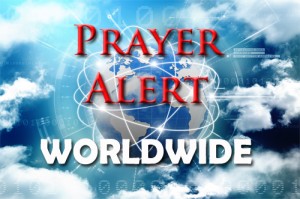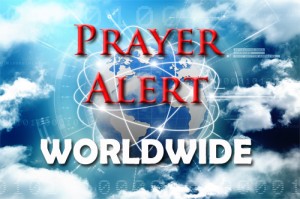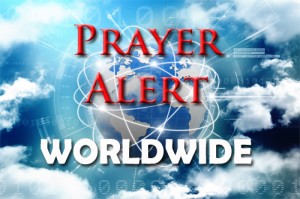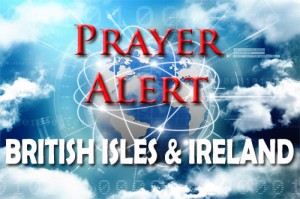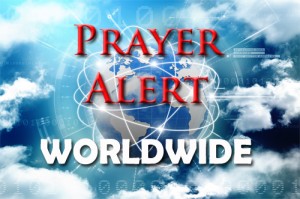Displaying items by tag: Persecution
Mali: Christian persecutions
A church leader in Mali reports, ‘Our churches and chapels are now being targeted by extremists, who have told Christians not to gather to pray’. In September and October, extremists ransacked and burned several churches in Mopti region. One congregation who were driven out of the building were told they would be killed if they were seen praying. In 2012, Tuareg separatists and Islamist groups linked to Al Qaeda seized control of northern Mali and declared the region an Islamic state. The new regime imposed sharia law in Timbuktu, including punishments such as amputations for theft. France deployed soldiers to assist the government against advancing Islamists, and a UN force of 13,000 military personnel is now stationed there. Violence continues despite a peace deal with rebel groups. In the first half of 2017 over 42,000 civilians joined those already internally displaced in Mali.
North Korea Former prisoner pleads for peace
Dear President Trump,
Thank you for taking the time to hear my plea for peace on the Korean Peninsula.
I was a US prisoner of the Kim Jong-il regime from December 2009 to February 2010. The sole reason why I entered North Korea via Hoeryung city on Dec. 25, 2009 was to call attention to human rights violations that have occurred against innocents in the region and to demand better conditions -- conducive to life -- for North Koreans.
On a personal level, I have been profoundly wounded and suffered loss on an incalculable and irretrievable scale as a result of these efforts to highlight the North Korean populace’s severe victimization and unjust suffering. Accordingly, I sincerely beg that whatever you decide to do in concert with South Korean authorities and the international community that none of the ordinary people of both North and South Korea will ever get hurt; Koreans have already endured and sacrificed far too much.
It’s been brought to my attention that persons who have advised you and are within your administration profess to be Christians. Please kindly be reminded that a large number of underground Christians are within North Korea. They are the most persecuted religious group in the world, according to multiple watchdogs of religious rights internationally. As I pray your team accepts upon deep reflection, it would be decidedly un-Christian to countenance indiscriminate killings of those who are among the people in the world who suffer the most.
As was recorded by a 2013 United Nations Commission of Inquiry, an estimated 200,000 to 400,000 “Christians still professing their religion secretly” despite “high risks” are in North Korea today.
Another ethical dilemma vis-a-vis military strikes would be that North Korea’s political prison camps -- where thousands of Christians are imprisoned and suffering grievously -- are near weapons of mass destruction facilities and test sites.
For instance, as was written in the above-cited UN report: “Political Prison Camp No. 16 covers about 560 square kilometres of rugged terrain in Myonggan, North Hamgyong Province. It is located in close proximity to the Punggye-ri nuclear test site. ... The GeoCoordinates for the central area of Camp 16 are 41.1849N 129.2032E.”
Furthermore, an estimated 10 million Korean families were heartbreakingly severed by the brutal realities engendered through Korea’s division. Fewer than 1 percent have been permitted to see or even hear from their missing or displaced loved ones to date. As the artificial border became fixed, whether Koreans discovered themselves in the North or the South amid the tumult and upheaval of the period was in innumerable cases but a question of chance.
The South’s President Moon Jae-in -- like a multitude of South Koreans, Korean-Americans and other Koreans worldwide -- has family in North Korea.
Therefore, it is my sincere and tearful prayer that you, Mr. President, would take into serious consideration these excruciatingly painful and unresolved tragedies, while honoring the moral imperative to determine a peaceful resolution vis-a-vis the security predicament.
We must remember Kim Jong-un disallows North Koreans all of the basic freedoms most of us take for granted. North Koreans of all classes and backgrounds are not permitted to read what they wish. Neither are they able to travel freely within their own territory. Going abroad is simply out of the question for the overwhelming majority. Punishments in retaliation for being caught with books such as the Bible, or accidentally speaking out of turn or appearing irreverent, for example, are draconian and routinely deadly. These are but a few of the reasons the whole area is often referred to as a single enormous prison.
High-level escapee Thae Yong-ho, who defected to the South last year with his immediate family, characterizes North Korea as a “gigantic slave society that exists only for the hereditary succession of the Kim family.” Although once among Kim Jong-un’s most entrusted -- having been Pyongyang’s diplomat in London for 10 years -- he bravely declared subsequent to escaping, “I am very determined to do everything possible to pull down the regime to save not only my family members but also the whole North Korean people from slavery.”
There are countless individuals -- even among North Korea’s elite and military -- who confidentially share Thae’s hunger and thirst for reform and transformation within the North today. I know this with certainty.
Here is my earnest, wholehearted and tearful plea to you, Mr. President: Please unconditionally preserve the lives of both North and South Korea’s general population. Under no circumstances -- if international laws, norms and principles professing to safeguard innocents’ most sacred right to life contain any substance -- can the loss of their lives be tolerated.
There is a thoroughly workable and peaceable solution to the North Korea crisis. It involves reaching out to the general populace of North Korea in sympathy and supporting their internal unseating of Kim Jong-un -- one individual. This procedure must be accompanied by the freeing of all political prisoners -- who are victims of crimes against humanity and possibly genocide -- which can be achieved via the mediation of those North Koreans who assume interim administrative responsibilities in the immediate aftermath of Kim’s indigenous and peaceful ouster.
Elite or senior-level defections are conspicuously rising. The South’s Ministry of Unification recently reported that this year, North Korean elites -- including party officials, diplomats, and university professors -- are defecting twice as often as in 2016. Numerous members of the North’s military have been defecting to the South as of late, as well. Countless more have died while attempting to flee.
In July, an elite-level family of five -- including a former North Korean party official, his wife, son and two daughters -- struggled courageously to defect to the South. They carried poison with them to kill themselves -- as an alternative to Kim Jong-un’s systematic cruelty -- if Chinese authorities forcibly repatriated them. Heartbreakingly, these refugees deserving of protection were apprehended en route. To avoid inhumanity and torture, all five members of this senior-level family committed suicide.
As Thae Yong-ho has emphasized, high-ranking North Koreans are in actual fact slaves and are suffering gravely also.
The overwhelming majority of North Koreans hope and yearn to be reunified with the South, to live in a gentler and more egalitarian society and to bid adieu to Kim Jong-un. Those who suggest otherwise, Mr. President, unfortunately retain an inaccurate assessment of the overall situation on the ground.
Accordingly, we must reach out to the North Korean people if a peaceable solution is veritably what we seek. The native and nonviolent ousting of Kim Jong-un is distinctly achievable.
I’ve been praying through an outpouring of tears and wholeheartedly plead for you and your administration to remember the acute suffering and unparalleled victimization of tens of millions of warm-hearted, gentle and benevolent North Koreans -- who deserve compassion and require grace -- and to please pursue a peaceable answer with regard to the security quandary.
Thank you once again for your time and attentiveness to the above concerns.
By Robert Park
Robert Park is a founding member of the nonpartisan Worldwide Coalition to Stop Genocide in North Korea, minister, musician and former prisoner of conscience. He can be reached at This email address is being protected from spambots. You need JavaScript enabled to view it.. -- Ed.
North Korean defector describes 'life of hell' for Christians
North Korean Choi Kwanghyuk is one of the lucky ones.
The 55-year-old managed to escape from the work camp where he was sent after being targeted and persecuted by the government for his Christian faith.
“We couldn’t raise our voice during a service, we couldn’t sing out loud during a worship … that was hard,” Choi told Fox News through a translator. “Also, we had to hide so that other people could not see us.”
Despite having to hide his faith in plain sight while living in North Hamgyong province, Choi was still compelled to bring religion to others when he started an underground church.
“There were about nine people,” he said. “I couldn’t do mission work because we had to keep it secret that we had a church.”
“If that information had leaked, we could have faced the death penalty.”
The 55-year-old managed to escape from the work camp where he was sent after being targeted and persecuted by the government for his Christian faith.
“We couldn’t raise our voice during a service, we couldn’t sing out loud during a worship … that was hard,” Choi told Fox News through a translator. “Also, we had to hide so that other people could not see us.”
Despite having to hide his faith in plain sight while living in North Hamgyong province, Choi was still compelled to bring religion to others when he started an underground church.
“There were about nine people,” he said. “I couldn’t do mission work because we had to keep it secret that we had a church.”
“If that information had leaked, we could have faced the death penalty.”
“I never heard the term ‘underground church’ until I got here [to the U.S.].”
In 2008, North Korean authorities caught up to Choi and arrested him. He was held in prison by the state security department where he says he was interrogated about his faith.
“I was tortured there,” he said. “I kept denying it.”
He said that he was about to be sent to one of North Korea’s brutal labor camps when he was able to break free.
“I decided to escape because I thought that once they sent me to the other camp, they could eventually send me to the concentration camp or kill me,” Choi recalled. “I was traveling back and forth between China and North Korea, but they kept searching for me, and I knew it could put my friends in danger too, so I left.”
The North Korean gulag system is notorious for harsh conditions and brutal treatment of its prisoners.
Choi feared being sent to the most notorious camp within the system -- Camp 22.Also known as Hoeryong concentration camp, and part of a large system of prison camps throughout the Communist dictatorship, Camp 22 is an 87-square-mile penal colony located in North Hamgyong province where most of the prisoners are people accused of criticizing the government.
Inmates, most of whom are serving life sentences, face harsh and often lethal conditions. According to the testimony of a former guard from Camp 22, prisoners live in bunkhouses with 100 people per room and some 30 percent show the markings of torture and beatings -- torn ears, gouged eyes and faces covered with scars.
“Unfortunately, it is inexplicably easy to wind up in one of these camps. While someone can be sent to one of these camps for openly evangelizing, someone can just as easily be sent there for simply being in contact with a religious person,” said King of the International Christian Concern.
Prisoners are forced to stand on their toes in tanks filled with water up to their noses for 24 hours, stripped and hanged upside-down while being beaten or given the infamous "pigeon torture” -- where both hands are chained to a wall at a height of 2 feet, forcing them to crouch for hours at a time.
Tiny rations of watery corn porridge leave inmates on the brink of starvation, and many hunt rats, snakes and frogs for protein. Some even take the drastic measure of searching through animal dung for undigested seeds to eat. Beatings are handed out daily for offenses as simple as not bowing down in respect to the guards fast enough. Prisoners are used as practice targets during martial arts training. Guards routinely rape female inmates.
Choi said he finally escaped to neighboring China. While he was figuring out where to go next, he had heard how the general image of North Korean defectors was not positive among those in South Korea.
“So, I applied for asylum in the U.S.,” he told Fox News.
Choi, who was single when he lived in North Korea, was granted asylum in the U.S. in 2013. He first lived in Dallas before eventually moving to Los Angeles where he now lives.
Choi said that as a result of injuries he received while being tortured, he is unable to work but has committed himself to telling the world about the human rights abuses in his native land.
“First of all, every human must have the right to freedom,” he said. “There is no freedom in North Korea. By law, they have the freedom of religion and the freedom of the press, but the reality is very different.”
And despite the hardships he may face, Choi said that life in the U.S. is a vast improvement.
“There is an enormous difference between my life in North Korea and my life in the U.S,” he said.
“The life in North Korea is hell … life in America is heaven.”
Source: Fox News - http://www.foxnews.com/world/2017/10/25/north-korean-defector-describes-life-hell-for-christians.html
Report: Global Persecution at Historic Peak
Christianity is “the world’s most oppressed faith community,” and anti-Christian persecution in the worst regions has reached “a new peak” claims a new report by Aid to the Church in Need.
“In terms of the numbers of people involved, the gravity of the crimes committed and their impact,” notes the report, “it is clear that the persecution of Christians is today worse than at any time in history. Not only are Christians more persecuted than any other faith group, but ever-increasing numbers are experiencing the very worst forms of persecution.”
The report, “Persecuted and Forgotten?”, compiles analysis from a number of sources, including Open Door’s World Watch List and the Pew Forum’s Social Hostilities Index. In 12 of the 13 countries reviewed, the situation for Christians was worse in overall terms in the period 2015–17 than within the preceding two years. The only exception was Saudi Arabia, where “the situation was already so bad it could scarcely get any worse.”
The report claims that the United Nations and Western governments failed to offer Christians in countries such as Iraq and Syria the emergency help they needed as genocide got underway. “If Christian organizations and other institutions had not filled the gap,” says the report, “the Christian presence could already have disappeared in Iraq and other parts of the Middle East.”
ISIS and other Islamist militant groups have committed genocide against Christians in Iraq and Syria. The militants are being defeated in many areas, though, which is making it possible for some Christian communities to return to their homes. “The defeat of [ISIS] and other Islamists in major strongholds of the Middle East offers the last hope of recovery for Christian groups threatened with extinction,” says the report. “Many would not survive another similar violent attack.”
Christians have also suffered increased violence and oppression as a result of a rise in religious nationalism. In India, persecution has risen sharply since the 2014 rise to power of the right-wing Hindu nationalist Bharatiya Janata Party.
The worst persecution, though, continues to occur in North Korea. As the report points out, the “unspeakable atrocities” against Christians include enforced starvation, enforced abortion, and reports of believers being hung on crosses over a fire and others being crushed under a steamroller.
Download the report here: https://www.churchinneed.org/wp-content/uploads/2017/10/persecution-1-1.pdf
Myanmar: Rohingya refugees flee violence
The Rohingya Muslims have lived for centuries in the majority Buddhist Myanmar. On 24 August the media reported clashes between Rohingya militants and Buddhist security forces in Rakhine state. Within two weeks the clashes escalated to a military operation, causing 15,000 Rohingya to flee daily to Bangladesh. The situation is becoming a humanitarian crisis in overstretched border camps, and 400,000 Rohingya are trapped in conflict zones where military ‘clearance operations’ continue. UN aid agencies are blocked from delivering food, water and medicine and humanitarian workers reported looting in warehouses stocking vital emergency supplies. Bishop Desmond Tutu has joined others criticising president Aung San Suu Kyi due to the ‘clearance’ actions of the army. In 2015, during a similar mass migration of Rohingya fleeing by boat from Myanmar, an estimated 25,000 were taken by human traffickers and many died at sea. This time an aid group rescuing refugees from the Mediterranean Sea is redirecting its ship to the Bay of Bengal. Pray for a greater international response. See also
Sudan: church challenges government interference
The Sudanese Church of Christ (SCOC) is challenging a government decision to impose an unelected leadership committee on the church. On 23 August the Ministry of Guidance and Religious Endowments, which oversees religious affairs in Sudan, appointed an alternative executive committee led by Mr Angelo Alzaki. Before this, eight SCOC leaders had been arrested and charged with trespassing on church headquarters and refusing to hand over control of the church to him. They were later released on bail. The SCOC's leadership said that this action violates the procedures of the denomination. The situation mirrors the Sudan Evangelical Presbyterian Church, where a government-backed church committee that was not constituted in accordance with church procedures has sold church land to developers.
Asia: blasphemy battles
The Commission on International Religious Freedom has issued a report on blasphemy laws globally. The five worst-scoring nations are Iran, Pakistan, Yemen, Somalia, and Qatar, while 71 of the world's 195 countries penalties ranging from fines to imprisonment and death. In Indonesia the influence of radical Islam is being felt, with some districts adopting highly restrictive bylaws; but, praise God, a Jakarta Baptist pastor reports that Christianity is growing there. Pakistan’s Christians fear a rise in persecution after the removal of Prime Minister Nawaz Sharif. Pray for God to cover them with His canopy, particularly the growing 24/7 prayer cells. The Iranian government is particularly concerned about the rise of Christianity, especially among youths. Islamic seminary officials are calling on the government to ‘stop the spread’ of the faith. Ask God to release even more of His angels into the battle between dark and light over Asia.
India: prison conversions and miraculous healings
'The villagers started punching and kicking us, all over our bodies. They asked us to praise Hindu gods. We refused. They kicked us harder.' This is what happened to Sohan, after he decided to follow Jesus and began sharing the gospel with others. His attackers then called the police and accused him of converting people to Christianity. He was imprisoned for four days, and saw God work in amazing ways. Sohan says, 'I preached the gospel and prayed for an inmate who was sick. He was healed and believed in Christ instantly. My other cellmate was a person suffering from intense depression. He kept saying that he wanted to kill himself. I prayed for him and the suicidal thoughts left him. He also accepted Christ. I also met a young man falsely accused of raping a woman; he was very upset and felt hopeless about his life. I shared the gospel with him, and he also accepted Christ. This way I saw God's immense power and deliverance.' Open Doors partners were able to bail Sohan out of prison, and are helping him to fight the false claims filed against him.
Government needs to stand up for Christians
The UK will hold a general election on 8 June, which will put in place a new government. Barnabas Fund is calling on all political parties to make specific commitments to help persecuted Christians. It has launched a manifesto, endorsed by church leaders and peers from across the political spectrum, which calls on the next government to take specific actions to address the genocide of Christians in the Middle East. We are called to pray and ask that the Lord - who is God of kings and governments (Daniel 2:47) - to establish in authority those who will act justly. Pray that the Government will give priority to responding to the persecution of Christians, instead of focusing on ‘equality’ issues which see anti-Christian discrimination sidelined.
Egypt: Christians on pilgrimage killed
Just hours before the beginning of Ramadan, masked gunmen riding three SUVs killed 29 and wounded 22 Coptic Christians on pilgrimage to a monastery in Upper Egypt. Most were children. This was the fourth attack on Christians since December. The bus was travelling in the desert towards a remote monastery 140 miles south of Cairo, where Christians account for more than 35% of the population, the highest ratio in any province. Security and medical officials fear the death toll could rise. Following the attack, acknowledging the lapses of security, Major-General Faisal Dewidar was transferred from his post in charge of security, as part of a wider reshuffle that included thirteen other Interior Ministry officials being removed from their posts and appointed elsewhere. Egypt then launched a series of airstrikes that targeted what it said were militant bases in eastern Libya in which the assailants were trained (see the next article).
